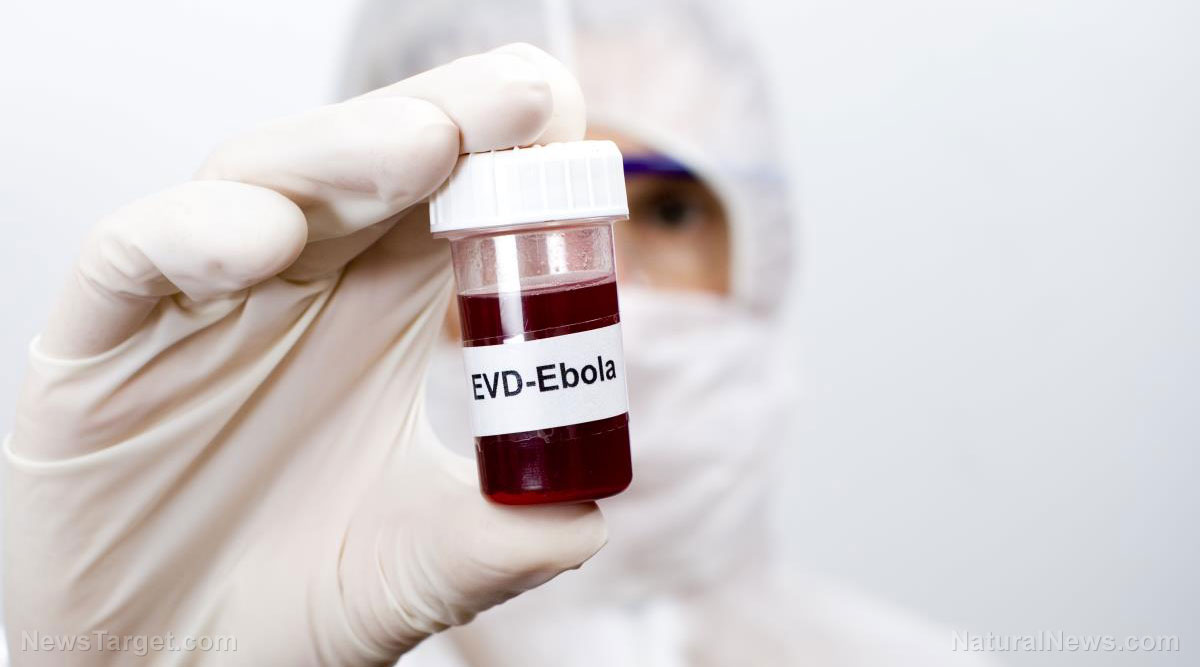South Korean study: mRNA COVID-19 vaccines found to increase MYOCARDITIS risk by 620%
08/08/2024 / By Ava Grace

The mRNA Wuhan coronavirus (COVID-19) vaccines increase the risk of myocarditis (heart muscle inflammation) by six times, according to a study by South Korean researchers.
The paper by the study authors from Yonsei University‘s Wonju College of Medicine was published July 23 in Nature Communications. The study originally sought to examine the long-term risks of autoimmune connective tissue diseases (AI-CTDs), such as lupus erythematosus, alopecia areata, psoriasis and rheumatoid arthritis after COVID-19 vaccination.
Researchers analyzed data from more than nine million individuals injected with at least one dose of an mRNA COVID-19 vaccine. The data from the nine million were split into two – a vaccination cohort and a historical control cohort.
South Korea’s high vaccination rate – 96.6 percent of adults completed the primary COVID-19 vaccine series by October 2022 – allowed the researchers to study the health history of the control cohort. Health data for the control cohort was scrutinized for two years before their first vaccine dose up to Dec. 31, 2020, just before the vaccine rollout. Meanwhile, the vaccination group was observed through Dec. 31, 2022.
“Shortly after the COVID-19 outbreak, vaccines emerged as [an] … intervention to address the pandemic,” the authors wrote. They nevertheless acknowledged that “the effectiveness of [the COVID-19] vaccine wanes over time” and that SARS-CoV-2 strains such as the B11529 omicron can bypass vaccine-induced immunity.”
Vaccines increase risk of cardiac inflammation
The study authors sought to determine the long-term risk of AI-CTDs after injection with COVID-19 vaccines. While their study did not find any link to AI-CTDs with primary vaccination, it found other conditions linked to the COVID-19 injections such as cardiac inflammation and Guillain-Barre syndrome (GBS), a rare neurological disorder.
They found that the COVID-19 injections increased the risk of developing myocarditis by 620 percent in the vaccination cohort compared to the control cohort. The risk of developing pericarditis (heart lining inflammation) increased by 175 percent in the vaccination cohort, and the risk of developing GBS increased by 62 percent. (Related: Big Pharma admits mRNA vaccine causes CANCER.)
Moreover, the South Korean researchers found that booster doses were associated with an increased risks of developing certain AI-CTDs. This could be associated with autoimmune flare-ups after repeated mRNA vaccination, causing dormant diseases to become active and manifest in the body.
“The result of our study may indicate the necessity for additional monitoring when administering booster vaccinations,” the authors wrote. They also acknowledged that the COVID-19 vaccines don’t work as intended, noting that “an additional dose of the vaccine could serve as a strategy to address the limitation of its waning efficacy over time.”
Children’s Health Defense Chief Scientific Officer Brian Hooker lauded the “very robust” study, but noted the authors’ minimization of the most alarming data. According to him, several other studies also show relationships between autoimmune disorders and mRNA vaccines.
Head over to VaccineDamage.news for similar stories.
Watch this video about South Korea’s neighbor Japan launching a COVID-19 mRNA task force to investigate crimes against humanity in the form of the dangerous vaccines.
This video is from The Prisoner channel on Brighteon.com.
More related stories:
Kansas legally charges Pfizer for misleading the public about its so-called “COVID-19 vaccine.”
mRNA vaccines are extremely toxic, Moderna scientists now warn.
mRNA vaccines for the Wuhan coronavirus caused blood disorder in at least 36 people.
What do cigarette addiction, alcoholism and mRNA vaccines all have in common?
Sources include:
Submit a correction >>
Tagged Under:
autoimmune disorders, chemical violence, harmful medicine, heart disease, heart health, immunization, myocarditis, pandemic, research, South Korea, vaccine damage, vaccine injury, vaccines
This article may contain statements that reflect the opinion of the author
RECENT NEWS & ARTICLES
COPYRIGHT © 2017 PLAGUE INFO



















